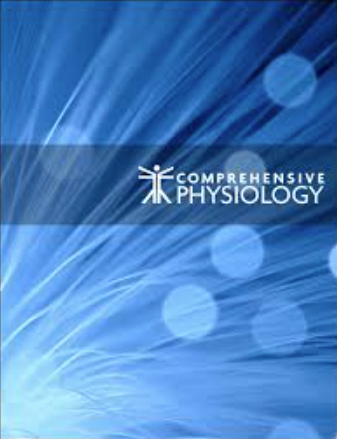Leandro C Brito, Thais C Marin, Luan Azevêdo, Julia M Rosa-Silva, Steven A Shea, Saurabh S Thosar
下载PDF
{"title":"运动的时间生物学:评估运动的最佳时间,以获得更大的心血管和代谢益处。","authors":"Leandro C Brito, Thais C Marin, Luan Azevêdo, Julia M Rosa-Silva, Steven A Shea, Saurabh S Thosar","doi":"10.1002/cphy.c210036","DOIUrl":null,"url":null,"abstract":"<p><p>Physiological function fluctuates across 24 h due to ongoing daily patterns of behaviors and environmental changes, including the sleep/wake, rest/activity, light/dark, and daily temperature cycles. The internal circadian system prepares the body for these anticipated behavioral and environmental changes, helping to orchestrate optimal cardiovascular and metabolic responses to these daily changes. In addition, circadian disruption, caused principally by exposure to artificial light at night (e.g., as occurs with night-shift work), increases the risk for both cardiovascular and metabolic morbidity and mortality. Regular exercise is a countermeasure against cardiovascular and metabolic risk, and recent findings suggest that the cardiovascular benefits on blood pressure and autonomic control are greater with evening exercise compared to morning exercise. Moreover, exercise can also reset the timing of the circadian system, which raises the possibility that appropriate timing of exercise could be used to counteract circadian disruption. This article introduces the overall functional relevance of the human circadian system and presents the evidence surrounding the concepts that the time of day that exercise is performed can modulate the cardiovascular and metabolic benefits. Further work is needed to establish exercise as a tool to appropriately reset the circadian system following circadian misalignment to preserve cardiovascular and metabolic health. © 2022 American Physiological Society. Compr Physiol 12:3621-3639, 2022.</p>","PeriodicalId":10573,"journal":{"name":"Comprehensive Physiology","volume":"12 3","pages":"3621-3639"},"PeriodicalIF":4.2000,"publicationDate":"2022-06-29","publicationTypes":"Journal Article","fieldsOfStudy":null,"isOpenAccess":false,"openAccessPdf":"https://www.ncbi.nlm.nih.gov/pmc/articles/PMC10214902/pdf/nihms-1897868.pdf","citationCount":"3","resultStr":"{\"title\":\"Chronobiology of Exercise: Evaluating the Best Time to Exercise for Greater Cardiovascular and Metabolic Benefits.\",\"authors\":\"Leandro C Brito, Thais C Marin, Luan Azevêdo, Julia M Rosa-Silva, Steven A Shea, Saurabh S Thosar\",\"doi\":\"10.1002/cphy.c210036\",\"DOIUrl\":null,\"url\":null,\"abstract\":\"<p><p>Physiological function fluctuates across 24 h due to ongoing daily patterns of behaviors and environmental changes, including the sleep/wake, rest/activity, light/dark, and daily temperature cycles. The internal circadian system prepares the body for these anticipated behavioral and environmental changes, helping to orchestrate optimal cardiovascular and metabolic responses to these daily changes. In addition, circadian disruption, caused principally by exposure to artificial light at night (e.g., as occurs with night-shift work), increases the risk for both cardiovascular and metabolic morbidity and mortality. Regular exercise is a countermeasure against cardiovascular and metabolic risk, and recent findings suggest that the cardiovascular benefits on blood pressure and autonomic control are greater with evening exercise compared to morning exercise. Moreover, exercise can also reset the timing of the circadian system, which raises the possibility that appropriate timing of exercise could be used to counteract circadian disruption. This article introduces the overall functional relevance of the human circadian system and presents the evidence surrounding the concepts that the time of day that exercise is performed can modulate the cardiovascular and metabolic benefits. Further work is needed to establish exercise as a tool to appropriately reset the circadian system following circadian misalignment to preserve cardiovascular and metabolic health. © 2022 American Physiological Society. Compr Physiol 12:3621-3639, 2022.</p>\",\"PeriodicalId\":10573,\"journal\":{\"name\":\"Comprehensive Physiology\",\"volume\":\"12 3\",\"pages\":\"3621-3639\"},\"PeriodicalIF\":4.2000,\"publicationDate\":\"2022-06-29\",\"publicationTypes\":\"Journal Article\",\"fieldsOfStudy\":null,\"isOpenAccess\":false,\"openAccessPdf\":\"https://www.ncbi.nlm.nih.gov/pmc/articles/PMC10214902/pdf/nihms-1897868.pdf\",\"citationCount\":\"3\",\"resultStr\":null,\"platform\":\"Semanticscholar\",\"paperid\":null,\"PeriodicalName\":\"Comprehensive Physiology\",\"FirstCategoryId\":\"3\",\"ListUrlMain\":\"https://doi.org/10.1002/cphy.c210036\",\"RegionNum\":2,\"RegionCategory\":\"医学\",\"ArticlePicture\":[],\"TitleCN\":null,\"AbstractTextCN\":null,\"PMCID\":null,\"EPubDate\":\"\",\"PubModel\":\"\",\"JCR\":\"Q1\",\"JCRName\":\"PHYSIOLOGY\",\"Score\":null,\"Total\":0}","platform":"Semanticscholar","paperid":null,"PeriodicalName":"Comprehensive Physiology","FirstCategoryId":"3","ListUrlMain":"https://doi.org/10.1002/cphy.c210036","RegionNum":2,"RegionCategory":"医学","ArticlePicture":[],"TitleCN":null,"AbstractTextCN":null,"PMCID":null,"EPubDate":"","PubModel":"","JCR":"Q1","JCRName":"PHYSIOLOGY","Score":null,"Total":0}
引用次数: 3
引用
批量引用


 求助内容:
求助内容: 应助结果提醒方式:
应助结果提醒方式:


